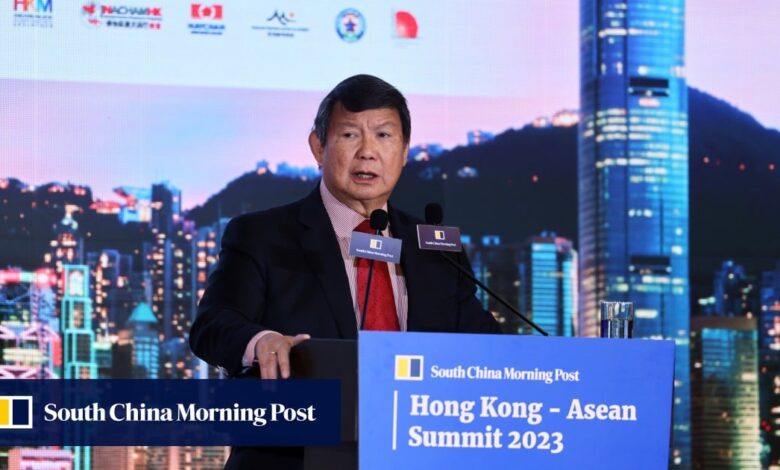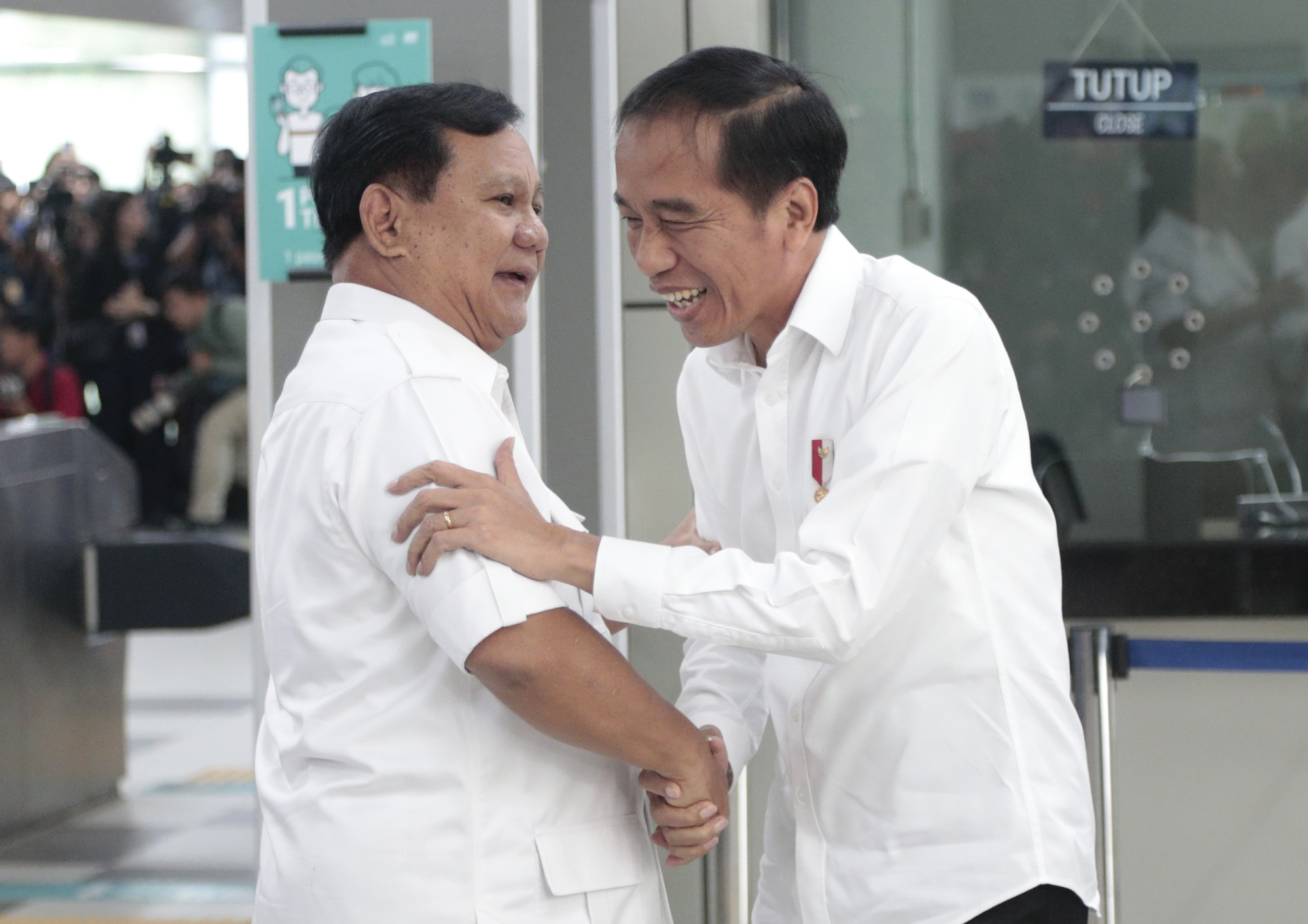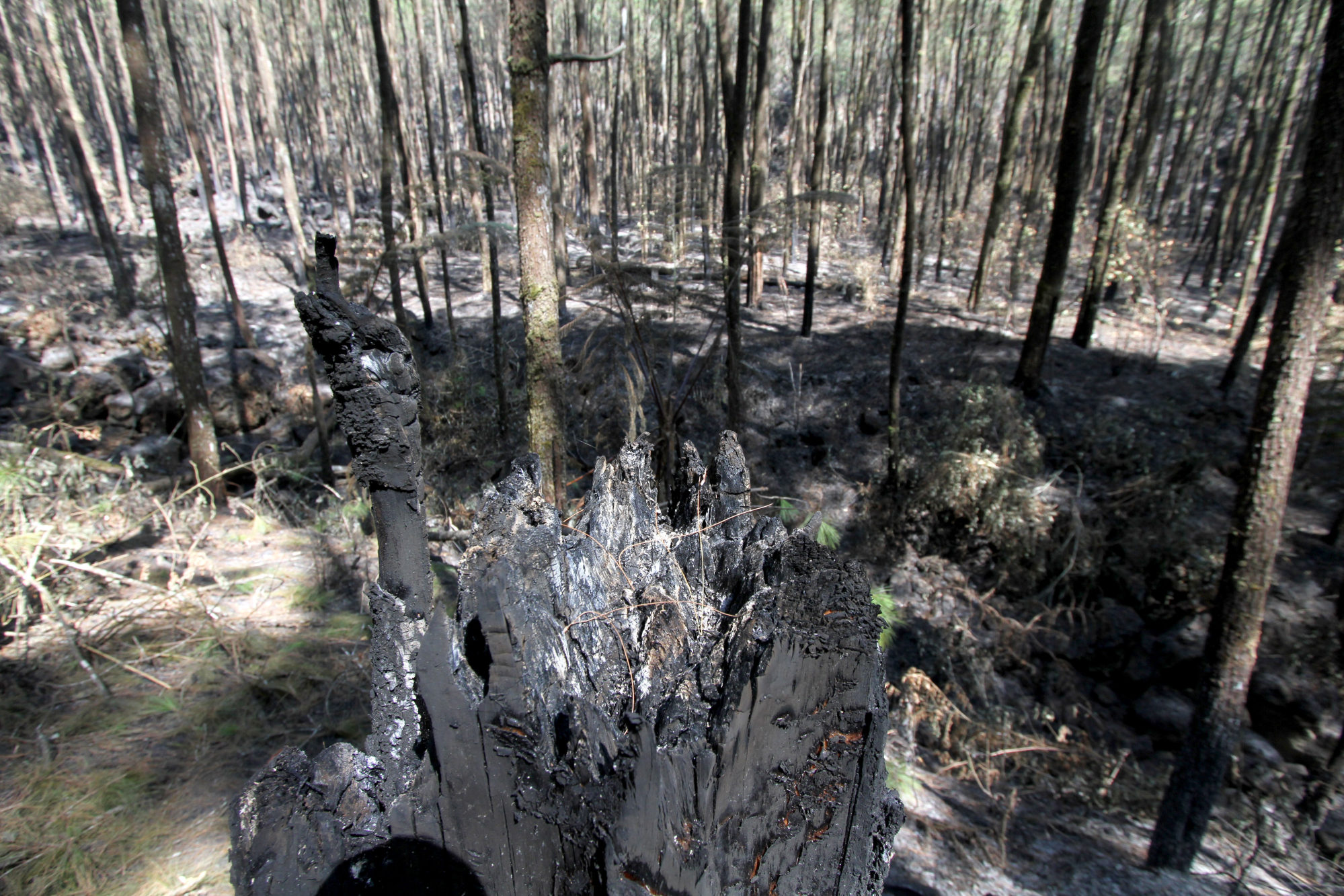Indonesia’s Prabowo Subianto to ensure ‘continuity’ in policies if he becomes president, brother Hashim Djojohadikusumo says

“In terms of geopolitics, [continuity] means that Indonesia will hew [to] and continue a line of neutrality,” he said in his keynote speech at the Post’s Hong Kong-Asean Summit 2023 on Monday.
Hashim said this was going to be increasingly important moving forward, with the world facing increased “great-power competition” as well as “the problems of Taiwan”, and where it stood in relation to mainland China.
Could rise of Jokowi’s ‘political clan’ lift Prabowo’s chances in Indonesia race?
Could rise of Jokowi’s ‘political clan’ lift Prabowo’s chances in Indonesia race?
“Once [Prabowo] becomes president in 2024, we’ll continue resolutely to that line of neutrality and non-alignment,” Hashim said. “We will be friends with the People’s Republic of China. We will continue to be friends with Australia, the United States, India, Japan and other countries.”
Hashim, an entrepreneur and co-founder of the Gerindra Party now led by defence minister Prabowo, also emphasised the importance of Chinese business and investments to the Indonesian economy, saying that he would like to assure investors in the wider region that his brother would continue to welcome business from mainland China.
“Businesses from the mainland have been instrumental in developing our nickel industry. Indonesia is the number one, the premier producer of refined nickel in the world and [that is] largely because of Chinese investment,” he said.

This has proved immensely lucrative in the case of nickel – a key material in the production of batteries – as Jakarta seeks to lure in global investors and become a key part of the electric vehicle supply chain.
Prabowo would continue to leverage the success of these policies, Hashim said, and also keep seeking investment from China, which he described as “one of the biggest drivers for Indonesian growth in the last 15 to 20 years”.
However, he also remarked that the recent stagnation in some sectors of the Chinese economy meant that Indonesia would also have to increasingly depend on its own domestic market.
“We are blessed with a big domestic market,” he said. “[There is a] demographic bonus, 55 per cent of Indonesia’s population [is] under the age of 35. This will be the engine for growth in the future.”

With the Indonesian election nearing in February 2024, Prabowo is hoping it will be third-time lucky in his bid to become leader of Indonesia, with Widodo’s two-term presidency coming to an end.
Despite a long-running and often bitter rivalry with Widodo, to whom Prabowo lost in both the 2014 and 2019 presidential elections, the two have since reconciled. Prabowo was co-opted into Widodo’s cabinet through his appointment as defence minister.
Now it appears Prabowo wants continuity to apply also to Widodo’s policies, which include the construction of a new US$32 billion capital Nusantara in Borneo, and the revamping of Indonesia’s domestic mining industry.
Indonesia and Prabowo’s biggest challenge, however, will lie in the high rate of inequality, according to Hashim, who said about 100 million of the country’s population still live under the poverty line based on the World Bank’s US$2 a day standard.
“Prabowo believes that this will be and can continue to be a source of instability, of political instability and social instability,” Hashim said. “So he believes that this, together with climate change … has to be addressed.”

To address these challenges, Prabowo plans to implement programmes such as free meals for schoolchildren and expectant mothers, supplemental salaries for underpaid workers, a rural housing development scheme, and a massive reforestation programme, according to Hashim.
“We believe that [through these programmes], Indonesia will be able to uplift at least 100 million poor into the middle class,” Hashim said, adding that he believed “after 10 years we’ll be able to provide the vast majority of Indonesian people with homes with which to live a dignified life”.
The Hong Kong-Asean Summit 2023 is organised by the South China Morning Post in partnership with the Hong Kong-Asean Foundation and Our Hong Kong Foundation. The summit also featured keynote speeches by Hong Kong Chief Executive John Lee Ka-chiu and Thailand’s Deputy Prime Minister Parnpree Bahiddha-Nukara, among others.


 Casino Welcome Bonus
Casino Welcome Bonus